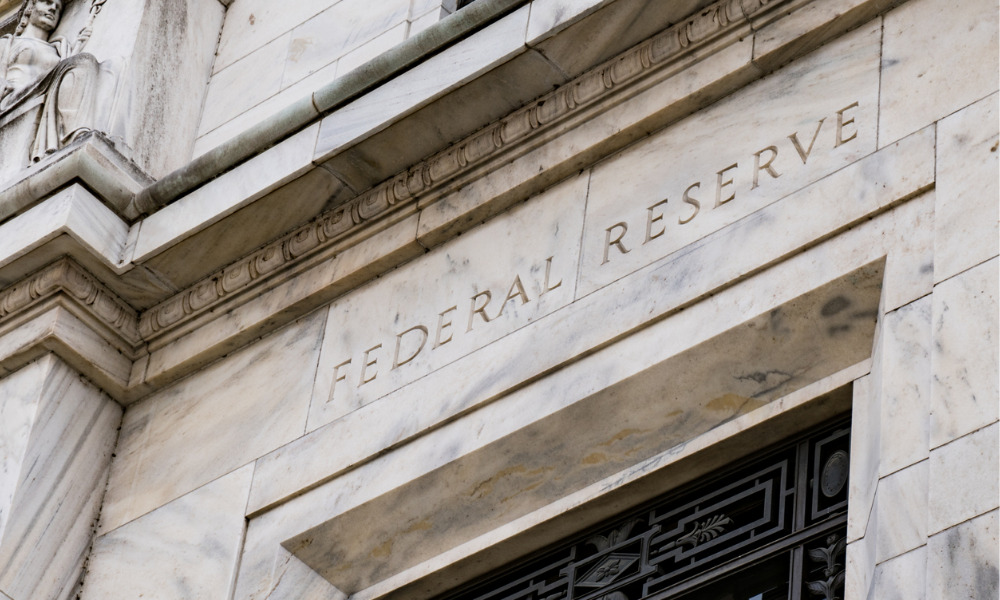Could the Bank of Canada be compelled to follow suit?

Chair of the U.S. Federal Reserve Jerome Powell has warned lawmakers that interest rates may need to climb higher and faster than first projected in the Fed’s uphill battle to tame inflation.
While market numbers crunched at the start of 2023 gave people hope that the Fed would pause its aggressive tightening policy and eventually reverse it later this year, the consumer price index has shot up dangerously fast since mid-February, reducing that hope to wishful thinking.
“The latest economic data have come in stronger than expected, which suggests that the ultimate level of interest rates is likely to be higher than previously anticipated,” the Fed chair said.
The elevated price index could be temporary, driven by seasonal effects on market activity. But Powell told the Senate hearing that the Fed was ready to treat the unexpected economic strength as a sign to roll up its sleeves and impose rate hikes bigger than the 25-basis-point increments the central bank has been using, if necessary.
“If the totality of the data were to indicate that faster tightening is warranted, we would be prepared to increase the pace of rate hikes,” Powell said.
This marked the first time the Fed chair acknowledged that the “disinflationary process” he previously referred to and relied on early in February was not going as well as the bank had hoped, Reuters reported.
Senators slammed Powell’s report, questioning whether the central bank was treating the inflation problem correctly and at what cost price pressures would have to be curbed, considering the damage the Fed’s tightening policy has already wrought on the job market as well as the country’s economic growth.
Democrats on the Senate banking committee, in particular, asserted that inflation persisted largely in part due to high corporate profits. Despite this, the Fed repeatedly “[gambled] with people’s lives” by imposing consecutive rate hikes – a move Massachusetts Senator Elizabeth Warren said would eventually lead to the national unemployment rate spiking by more than 1%, in line with similar data recorded in past economic recessions and based on the Federal Reserve’s latest forecasts, Reuters reported.
“You claim there is only one solution – lay off millions of workers,” Warren was quoted as saying, to which Powell replied: “Will working people be better off if we just walk away from our jobs and inflation rebounds?”
But the chair of the Senate banking committee, Senator Sherrod Brown, agreed with Warren, pointing out that raising interest rates did nothing to prevent businesses from “exploiting all these crises to jack up prices”, ending in a cycle of pain for which ordinary consumers paid the price.
Chair Powell needs to keep workers in mind as we continue to fight inflation. pic.twitter.com/ptE5DQ3ApA
— Senate Banking and Housing Democrats (@SenateBanking) March 7, 2023
At the other end of the table, Republican lawmakers wondered if the government’s energy policy was hindering supply and keeping prices higher than necessary.
“The only way to get this sticky inflation down is to attack it at the monetary side and the fiscal side,” said Senator John Kennedy. “The more we help on the fiscal side, the fewer people you will have to throw out of work.”
Powell’s Tuesday announcement raised a question that has long begun to take root at the back of people’s heads. Was the recently strengthening price index a bump in the U.S.’s road to recovery – or proof that inflation was still the enemy of 2023, warranting the Fed’s promised tougher and tighter response?
While Powell believed the Federal Reserve’s 2% inflation target could still be met without significant damage to the country’s labour market, he admitted that there would likely be “some softening in labour market conditions”.
Still, Powell said, the focus would remain on how inflation behaved. The 6.4% drop in the Consumer Price Index reported last January was still too high for the Fed chair.
While the process of wrestling inflation back down to 2% was a long one and “likely to be bumpy,” Powell believed it was the only way to go.
“[The] social costs of failure are very, very high,” he was quoted as saying.
What are your thoughts on Powell’s statement? Let us know in the comments below.



